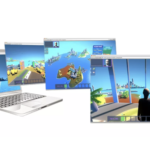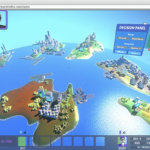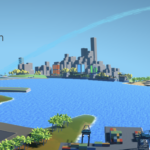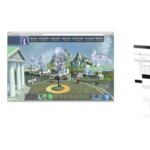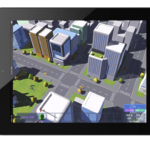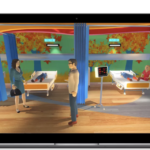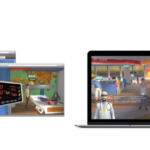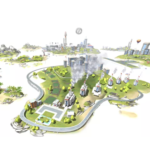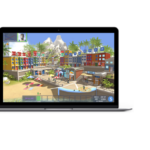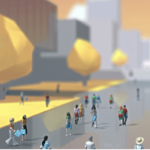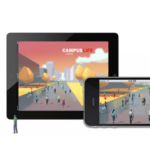Gamified Virtual World Platform in Australia Integrates Simulation into Higher Education
University of New South Wales creates UniPlay to make courses indistinguishable from video games
How often in education do we hear comments like, “Greatest game I’ve ever played! Or, ”Hi, I’m Will, a first-year student that is a Playconomics addict.”
These are responses to the award-winning work of two associate professors at the University of New South Wales School of Business. Their work, UniPlay, makes university courses that are indistinguishable from videogames.
Dr. Isabella Dobrescu and Dr. Alberto Motta feel that traditional courseware competes with the numerous entertainment options that surround students. With that in mind, they always seek a better way to engage students.
Playconomics is the result of 9+ years of research on using gamification to boost student engagement. With a constant flow of personalized feedback, the students experience a rigorous yet entertaining journey as they apply the theory of economics to in-game problems.
The success of what started as a specific game for a specific course, according to Motta, led to building a platform other academics can use to create their own courses.
It also led to the University of New South Wales spinoff company Lionsheart Studios, an educational software based on the theory of gameplay to boost student engagement and improve academic performance.
The learning solution can stand-alone or enhance traditional teaching by encompassing experiential learning and next-gen analytics. Built in Unity, a cross-platform game engine primarily used to develop both three-dimensional and two-dimensional video games and simulations, more courses have been created including a sequel to Playconomics.
PlayMacro is a challenging Macroeconomics simulation that focuses on economic decisions and policy analysis. Using current economic issues and real-world contexts students work to keep the economy performing at its best.
In the PlayTax game, students venture into the international business environment where, as entrepreneurs, they must tackle the decisional process in the multifaceted world of big corporations.
PlayMed Medical School Simulator Game is a unique life-like learning environment. Students become junior doctors in the midst of daily medical activities and clinical rotations in Pediatrics.
Interactive clinic-based scenarios play out as they make decisions and analyze their medical outcomes.
The games and platform Lionsheart Studios have built stand as an innovative way to immerse the student in a fun environment that is both enticing and academically accurate.
Just as the leaves changing in autumn add a spectacular brilliance of color to a seemingly mundane landscape, UniPlay is bringing vivid intensity to courses that could otherwise be dry.
The University of New South Wales (UNSW) and a spinoff company called Lionsheart Studios have developed a platform called UniPlay that enables instructors to turn any course into a video game.
Studying dry mathematical models has now become stimulating experiences. Rich, immersive, and academically rigorous gamification enables students to actively engage in applying theoretical principles and abstract concepts.
Virtual World Simulation and Gamification in Education
UniPlay is the result of 9+ years of research using gamification as a platform for teaching. Through the educational software, all of the traditional teaching materials, such as textbooks and 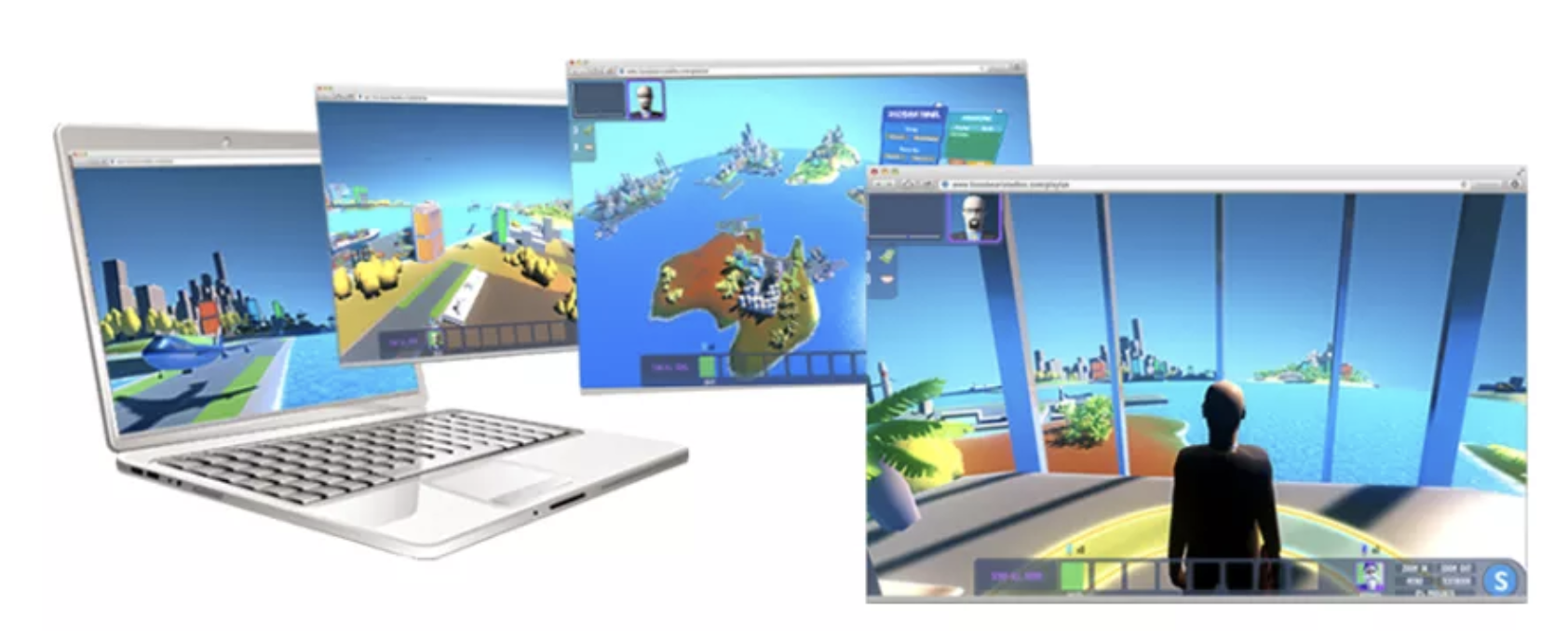 assessments, combined with a video game representation of academic models are provided. It can be used standalone or as an enhancement for instruction. A virtual world simulation provides experiential learning in a cohesive and entertaining yet challenging format.
assessments, combined with a video game representation of academic models are provided. It can be used standalone or as an enhancement for instruction. A virtual world simulation provides experiential learning in a cohesive and entertaining yet challenging format.
The research shows that learning motivation is intrinsic. While the students highly enjoy the game, it sustains their learning drive longer. For at-risk students this is crucial. As the founders of Lionsheart Studios stated, “Any lecturer’s own experience, as well as extensive cutting edge research on education, will tell you that dry mathematical models are not very helpful in stimulating students’ ability to imagine what lies behind the academic models and the abstract concepts we teach in class. And this is particularly problematic in medium to large classes.”
Gamifying the Study of Economics Through Simulation and More
With the current courses that have been gamified to date, students gain proficiency in literacy, mathematics, financial skills, planning analytics, governance, and decision-making. Built using Unity software, UniPlay is being used in Business, Medicine, Engineering, and Law. Some examples include Playconomics, PlayTax, PlayMed, PlayMacro, and a full-scale simulator aptly named CampusLife.
Examples of Simulation Courses Turned into Video Games in the Classroom
Envision learning microeconomics by playing a game. UNSW School of Business Associate Professors, Alberto Motta and Isabella Dobrescu, developed the platform and first course built with UniPlay. The flagship, Playconmics turns the science of microeconomics into a great game. Study hours seem to transform into leisure time.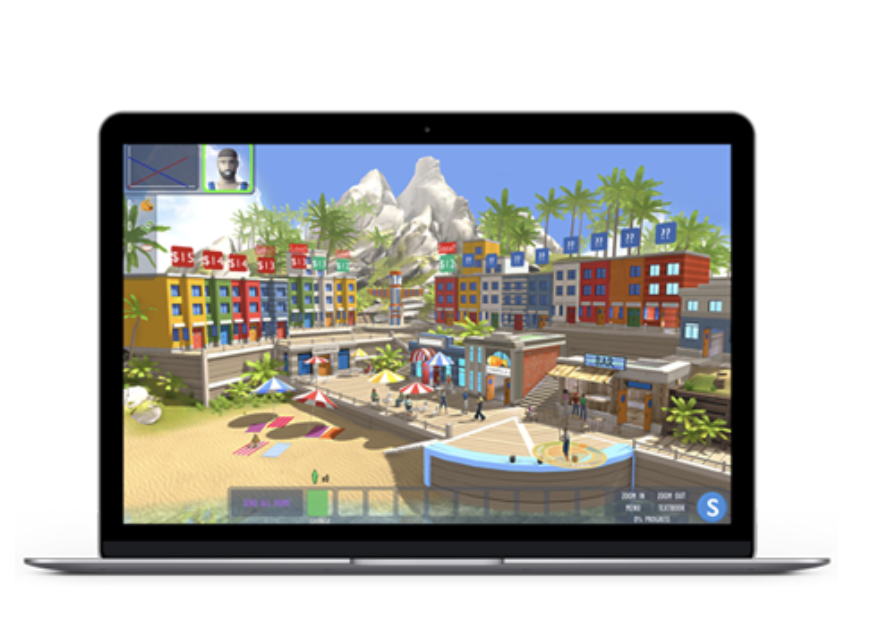
Built on rigorous and consistent economic models, Playconomics has an eBook to cover all relevant content of a typical introductory Microeconomics course. It features educational videos for all the graphs presented and explains the steps to derive them. It also included directs links to key game sections and tips on applying the theory to in-game problems.
Students have instant access to their scores receiving personalized feedback. Educators have access to rich analytics, which provide an ample picture of how their students are learning and any areas of difficulty. They can constantly monitor student engagement and academic performance. Researchers can also use comprehensive data for L&T analysis.
Associate Professor Stephanie McWhinnie from the University of Adelaide uses Playconomics at her university. She feels that it makes a giant leap for learning economics and appreciates the fresh and engaging digital sandbox it provides students to apply understanding of fundamental economic concepts.
In a natural progression, another economics game has been developed. PlayMacro, is a realistic macroeconomics simulation that focuses on economic decisions and policy analysis. Students must make important decisions to keep the economy performing at its best.
PlayMed Medical School Simulator Significantly Increases Knowledge
Two lecturers from UNSW are doctors at Sydney Children’s Hospital in Randwick. Dr. Keith Ooi, Clinical Academic and Consultant in Paediatric Gastroenterology and Michael Coffey, Paediatric Registrar, are the founders of PlayMed.
 In this serious game, medical students are educated through experience-based learning in a virtual hospital. By simulating an Emergency Department, this novel role-playing model challenges the management and decision-making skills expected of a junior doctor. An asthma prototype and preliminary case-control study takes students on a journey with paediatric patients. It provides a formative assessment and feedback bridging the gap between student and doctor.
In this serious game, medical students are educated through experience-based learning in a virtual hospital. By simulating an Emergency Department, this novel role-playing model challenges the management and decision-making skills expected of a junior doctor. An asthma prototype and preliminary case-control study takes students on a journey with paediatric patients. It provides a formative assessment and feedback bridging the gap between student and doctor.
Ooi and Coffey developed PlayMed to help medical students learn through experience and to them to be better equipped for their first foray into the medical world. A case-control study was conducted among final-year medical students at UNSW. They compared learning by the PlayMed game versus standard teaching and found a significant increase of 25% in knowledge retention.
Funding support came from a UNSW Learning and Teaching Grant and the School of Women’s and Children’s Health, Faculty of Medicine.
More Video Game Courses in Higher Education Built with UniPlay
Two additional serious games are engaging students in unique ways. PlayTax drops students into a simulation of life in the multifaceted world of big corporations. As an entrepreneur, students learn high-level decision-making in an international business environment. CampusLife prepares students for campus life via an engaging orientation simulation.
It is nice to see how UniPlay allows instructors to create university courses that are indistinguishable from video games. It will be even more exciting to see what the next season of brilliance will bring to UNSW.

